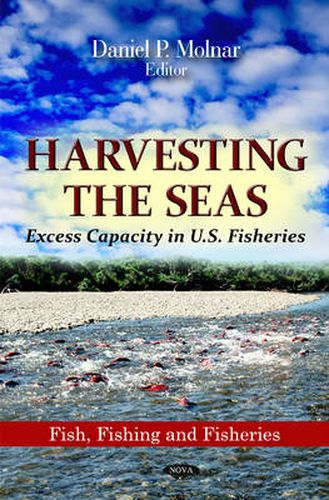Readings Newsletter
Become a Readings Member to make your shopping experience even easier.
Sign in or sign up for free!
You’re not far away from qualifying for FREE standard shipping within Australia
You’ve qualified for FREE standard shipping within Australia
The cart is loading…






The National Oceanic and Atmospheric Administration (NOAA) has conducted an assessment in response to national and international concerns that overcapacity, overfishing and other often co-occurring undesirable outcomes of a common management problem prevent the attainment of the goal of productive and sustainable marine ecosystems. Other undesirable outcomes include high levels of bycatch, adverse impacts on habitat, less safe working conditions on fishing vessels, lower product quality, poor economic performance, less viable fishing communities, non-compliance with regulations and a management regime that is unnecessarily complex, contentious and costly. This book identifies and describes U.S. federally managed fisheries with the most severe examples of excess harvesting capacity, and recommends cost-effective and privately funded measures that could be used to reduce excess harvesting capacity.
$9.00 standard shipping within Australia
FREE standard shipping within Australia for orders over $100.00
Express & International shipping calculated at checkout
The National Oceanic and Atmospheric Administration (NOAA) has conducted an assessment in response to national and international concerns that overcapacity, overfishing and other often co-occurring undesirable outcomes of a common management problem prevent the attainment of the goal of productive and sustainable marine ecosystems. Other undesirable outcomes include high levels of bycatch, adverse impacts on habitat, less safe working conditions on fishing vessels, lower product quality, poor economic performance, less viable fishing communities, non-compliance with regulations and a management regime that is unnecessarily complex, contentious and costly. This book identifies and describes U.S. federally managed fisheries with the most severe examples of excess harvesting capacity, and recommends cost-effective and privately funded measures that could be used to reduce excess harvesting capacity.